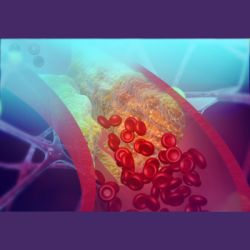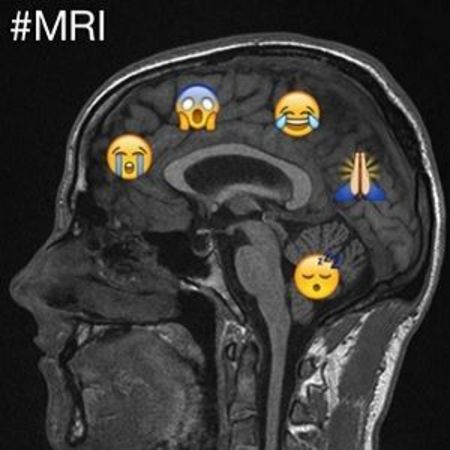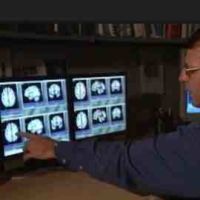Twitter offers interesting and valuable insights into the experience of MRI patients, according to a new study analysing tweets related to MRI over the course of one month. While the social networking site Twitter is known for breaking news and celebrity tweets, it may also prove to be a valuable feedback tool for medical professionals looking to improve the patient experience. The study is published in the Journal of Medical Imaging and Radiation Sciences.
Magnetic resonance Imaging (MRI) can be a stressful experience for many people, but clinicians have few ways to track the thoughts and feelings of their patients regarding this procedure. For this study, Johnathan Hewis, MSc, PgCert (LTHE), PgCert (BE), BSc Hon, a lecturer in medical imaging in the School of Dentistry and Health Sciences at Charles Sturt University (Australia), used the internal search engine within Twitter to identify all tweets containing the phrase "MRI" or "Magnetic Resonance Imaging". The capture period was one calendar month with no geographical limitations, so the sample included tweets in any time zone, location or language.
"You can search Twitter in a very similar way as a journal database," Hewis explained to HealthManagement.org. "I had to limit tweets to those in English only, otherwise the sample was quite global. This returned 6,471 tweets for me to manually review. Through analysis I was able to identify tweets that were posted by individuals who were about to, were actually undergoing, or had recently undergone an MRI examination."
His analysis of MRI-related tweets revealed that patients, their friends, and family members were sharing their thoughts and feelings about all aspects of the procedure through the microblogging site. Tweets were categorised into three themes: MRI appointment, scan experience, and diagnosis.
See also:Predictive Cold & Flu Tracker
The study found that tweets encapsulated patient thoughts about many other parts of the procedure including the cost, the feelings of claustrophobia, having to keep still during the scan, and the sound the MRI machine makes. One particularly memorable tweet about the sound read, “Ugh, having an MRI is like being inside a pissed off fax machine!” In addition, many patients also took issue with the fact that they were not allowed to select the music they listened to during the MRI.
“Music choice,” said Hewis, “is a simple intervention that can provide familiarity within a ‘terrifying’ environment.’ The findings of this study reinforce the ‘good practice’ of enabling patients’ choice of music, which may alleviate procedural anxiety.”
Not all the tweets were centred around stress. Many friends and family members expressed sentiments of support including prayers and offering messages of strength. Some patients used Twitter to praise their healthcare team or give thanks for good results.
The author is currently progressing a couple of other studies that focus on patient experience. "One study will potentially use Twitter as a method to recruit participants for further qualitative investigation regarding their imaging experiences, this is still in the ethics writing stage," Hewis said. "I am also already conducting a larger and more focused study exploring patient tweets in relation to perception."
Who tweets and why in relation to health probably needs further quantification, Hewis added, and he hopes to explore motivation for tweeting about healthcare experience in the future.
Source: Elsevier
Image credit: Johnathan Hewis, Charles Sturt University
Magnetic resonance Imaging (MRI) can be a stressful experience for many people, but clinicians have few ways to track the thoughts and feelings of their patients regarding this procedure. For this study, Johnathan Hewis, MSc, PgCert (LTHE), PgCert (BE), BSc Hon, a lecturer in medical imaging in the School of Dentistry and Health Sciences at Charles Sturt University (Australia), used the internal search engine within Twitter to identify all tweets containing the phrase "MRI" or "Magnetic Resonance Imaging". The capture period was one calendar month with no geographical limitations, so the sample included tweets in any time zone, location or language.
"You can search Twitter in a very similar way as a journal database," Hewis explained to HealthManagement.org. "I had to limit tweets to those in English only, otherwise the sample was quite global. This returned 6,471 tweets for me to manually review. Through analysis I was able to identify tweets that were posted by individuals who were about to, were actually undergoing, or had recently undergone an MRI examination."
His analysis of MRI-related tweets revealed that patients, their friends, and family members were sharing their thoughts and feelings about all aspects of the procedure through the microblogging site. Tweets were categorised into three themes: MRI appointment, scan experience, and diagnosis.
See also:Predictive Cold & Flu Tracker
The study found that tweets encapsulated patient thoughts about many other parts of the procedure including the cost, the feelings of claustrophobia, having to keep still during the scan, and the sound the MRI machine makes. One particularly memorable tweet about the sound read, “Ugh, having an MRI is like being inside a pissed off fax machine!” In addition, many patients also took issue with the fact that they were not allowed to select the music they listened to during the MRI.
“Music choice,” said Hewis, “is a simple intervention that can provide familiarity within a ‘terrifying’ environment.’ The findings of this study reinforce the ‘good practice’ of enabling patients’ choice of music, which may alleviate procedural anxiety.”
Not all the tweets were centred around stress. Many friends and family members expressed sentiments of support including prayers and offering messages of strength. Some patients used Twitter to praise their healthcare team or give thanks for good results.
The author is currently progressing a couple of other studies that focus on patient experience. "One study will potentially use Twitter as a method to recruit participants for further qualitative investigation regarding their imaging experiences, this is still in the ethics writing stage," Hewis said. "I am also already conducting a larger and more focused study exploring patient tweets in relation to perception."
Who tweets and why in relation to health probably needs further quantification, Hewis added, and he hopes to explore motivation for tweeting about healthcare experience in the future.
Source: Elsevier
Image credit: Johnathan Hewis, Charles Sturt University
References:
Hewis J (2015) Do MRI Patients Tweet? Thematic Analysis of Patient Tweets About Their MRI Experience. Journal of Medical Imaging and
Radiation Sciences. Published online October 28, 2015. DOI:
http://dx.doi.org/10.1016/j.jmir.2015.08.003
Latest Articles
healthmanagement, Twitter, tweet, social media, MRI, patient experience, stress
Twitter offers interesting and valuable insights into the experience of MRI patients, based on a new study analysing tweets related to MRI over the course of one month. The finding suggests that Twitter may be a valuable feedback tool for medical professi



























